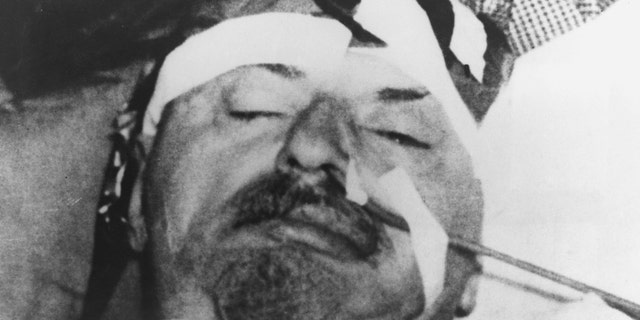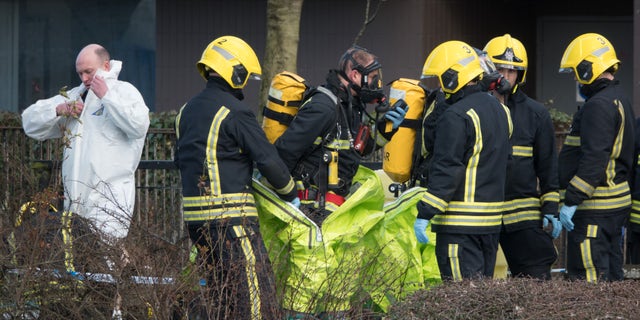A 2020 attempt by Russian agents to target and kill a CIA asset on U.S. soil signals a major shift in how the U.S. intelligence community assesses the threat faced by foreign informants who are vital to U.S. intelligence gathering.
Earlier this week, The New York Times revealed an unprecedented attempt by Moscow to pursue Aleksandr Poteyev, a former high-ranking Russian intelligence officer turned informant for the CIA who was living in Miami.
According to information set to be released in a book later this month by Calder Walton, a scholar of national security and intelligence at Harvard University, titled “Spies: The Epic Intelligence War Between East and West,” an operation was put into motion in a “modern-day Mercader” — a reference to Ramón Mercader, a secret agent of the Soviet Union under Josef Stalin who assassinated Leon Trotsky in Mexico City in 1940.

Ramon Mercader, an undercover agent of the Soviet secret police, struck Leon Trotsky in the head with an ax on Aug. 20, 1940. Trotsky died the next day. (Hulton-Deutsch Collection/Corbis/Corbis via Getty Images)
The former intelligence officer explained that the U.S. intelligence community goes to great lengths to ensure the safety and security of informants forced to flee their homeland and seek protection within U.S. borders in exchange for their intelligence services.

Officers on the scene in Salisbury, England, where Sergei and Yulia Skripal were found critically ill on March 4, 2018. (Matt Cardy/Getty Images)
“If they attempted to kill this guy, they’re going to attempt to kill our other guys that we have here,” she explained.
Koffler, who has personally been a target of Russian harassment, said the U.S. intelligence community previously assessed that while Moscow has intimidated Russians who aid Washington, the threat level against assets and within U.S. borders was still believed to be relatively low — an assessment that is no longer accurate.
Russia attempted to gain information on Poteyev by forcibly recruiting an unassuming Mexican scientist, Hector Alejandro Cabrera Fuentes.
Fuentes was found to have two wives, one a Russian living in Germany with two daughters, and the other living in Mexico — a peculiar arrangement that Moscow exploited.
The mother of two was stopped and prevented from leaving Russia after they returned for a visit, forcing Fuentes to travel to Russia to see them.
But the scientist blew the operation when he tried to enter a complex where Poteyev’s vehicle was believed to be kept, passing through an entry gate by tailgating the car in front of him.
Fuentes was then stopped by a security guard, at which point his wife walked away from the scene, located Poteyev’s car and took a picture of it — all of which was captured on security camera footage, according to reporting by The New York Times.
Koffler pointed out that the failure of Russia’s assassination attempt demonstrated that security procedures the U.S. intelligence community has in place to keep defectors safe are working.
“Putin has a far-reaching network of operatives. They should listen to their case officer and follow security instructions religiously to be safe.” Koffler said.

